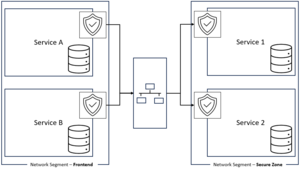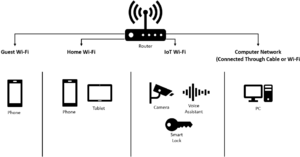Network Segmentation: Difference between revisions
From GCA ACT
Jump to navigationJump to search
No edit summary |
No edit summary |
||
| Line 6: | Line 6: | ||
| colspan="2" valign="top"| | | colspan="2" valign="top"| | ||
[[File:Elephants.png|frameless|100px|right|link=Advanced_Protection]] | [[File:Elephants.png|frameless|100px|right|link=Advanced_Protection]] | ||
{| role="presentation" class="wikitable mw-collapsible mw-collapsed" | |||
| <strong>Cybersecurity Tools</strong> | |||
|- | |||
| | |||
{{#categorytree:Network Devices|mode=pages|all}} | |||
|} | |||
|- | |- | ||
| colspan="2" valign="top" | <big>'''Organizations'''</big><br> | | colspan="2" valign="top" | <big>'''Organizations'''</big><br> | ||


